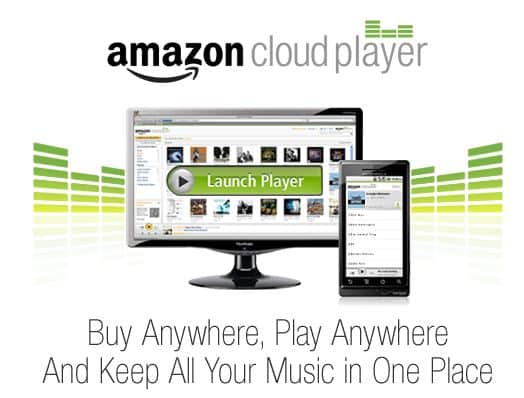
Amazon (NSDQ: AMZN) has launched its new online music locker and streamer without any licenses from the labels whose material it will store and distribute, the labels’ umbrella group IFPI tells paidContent. Not a problem, replies Amazon — licenses aren’t necessary for its new Cloud Drive.
That could open the retailer to legal complaints from those labels, one of which, EMI, has previously sued a similar-sounding service, MP3.com founder Michael Robertson’s web-based music lockers MP3Tunes and Sideload.com
But Amazon resists any suggestion that it needs licenses for storage. The company tells paidContent: “We do not need a license to store music in Cloud Drive. The functionality of saving MP3s to Cloud Drive is the same as if a customer were to save their music to an external hard drive or even iTunes.” We asked if Amazon believes the same holds true for streaming over its companion Cloud Player and was told this is its official statement and there would be no further comment at this time.
“I find Amazon’s store fascinating and I welcome them to the cloud music business,” Robertson tells paidContent. “What’s fascinating is that they’re doing exactly what EMI is suing us for!
“Because they’re a merchant, they’re skirting rules for purchases. By this, I mean that they’re putting purchases into a locker and allowing re-downloads which their licenses do not permit.”
Labels are keen for new business models like this to re-ignite the a la carte downloads business. But Amazon’s decision to launch without licenses looks like a bet that they are keen enough to overlook the re-use of their content without license.
Amazon is “still working out key legal issues related to the service”, sources tell WSJ.com, which quotes Sony (NYSE: SNE) Music Entertainment as saying: “We are disappointed that the locker service that Amazon is proposing is unlicensed by Sony Music.”
Spotify has waited for a long time, while it seeks label licenses, to launch its streaming product in the U.S.. Digital lockers like Amazon Cloud Drive should be viewed differently, their operators argue – essentially, just a hard drive in the sky, on which users can store and access their legitimately bought music. Amazon doesn’t allow uploads of tracks restricted by DRM either to certain devices or platforms.
But unless it was purchased through Amazon, the company has little way of knowing the music’s provenance — ie what’s been bought and what has, in some cases, been copied from someone else’s collection. As is customary, the terms of use bars breaking copyright law or violating other agreements. It also bans file sharing. (The emphasis on individual use and access may be one reason why the account is not linked to Amazon Prime membership, which allows for multiple users.)
“The industry is built to penalize pirates rather than value good customers,” explained one music industry insider not involved in this situation. Whether or not you think Amazon needs a license depends on whether you see storage or a cloud-based streaming service that isn’t paying a monthly fee to cover rights.